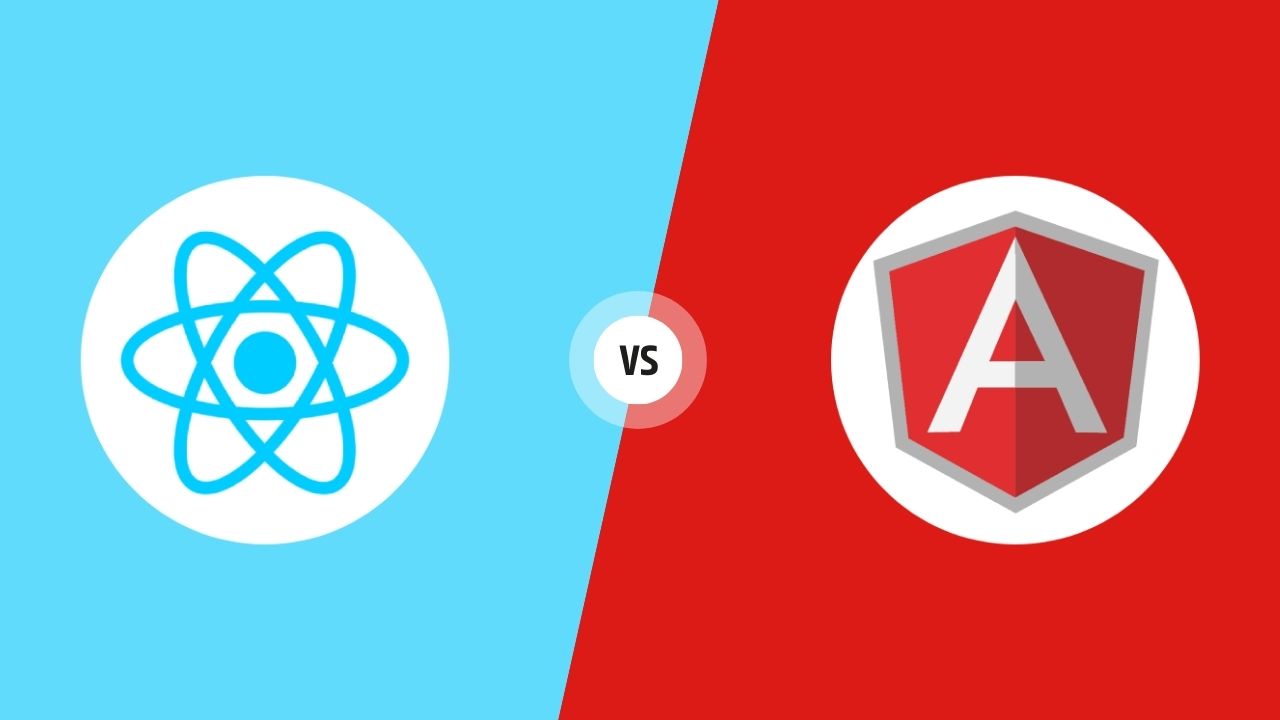When it comes to building modern web applications, developers often find themselves choosing between two popular JavaScript frameworks: React JS and Angular JS. Both frameworks have their unique strengths and weaknesses, making the decision of which one to use for your project an essential consideration. In this article, we’ll dive deep into the features, advantages, and use cases of both React JS and Angular JS, helping you make an informed choice for your development needs.
1. Understanding React JS and Angular JS
React JS, developed and maintained by Facebook, is a lightweight and efficient JavaScript library focused on building user interfaces. In contrast, Angular JS, developed by Google, is a comprehensive JavaScript framework that supports building dynamic web applications with a strong emphasis on structure and organization.
2. Comparison of Core Concepts
Component-based Architecture
React JS uses a component-based architecture, where applications are broken down into smaller, reusable components. These components can be combined to create complex user interfaces easily. On the other hand, Angular JS follows a similar approach with the concept of directives, enabling the creation of reusable HTML elements.
Data Binding and State Management
Both frameworks offer different approaches to data binding and state management. React JS utilizes a unidirectional data flow, allowing better control over data changes. In contrast, Angular JS uses a two-way data binding mechanism, automatically updating the view whenever the model changes.
Virtual DOM vs Real DOM
React JS uses a virtual DOM, which is a lightweight copy of the actual DOM, making updates more efficient. Angular JS directly manipulates the real DOM, which may result in slower updates for complex applications.
3. Performance and Scalability
React JS Performance
Due to its virtual DOM implementation, React JS provides excellent performance for dynamic applications. It efficiently updates only the necessary components, resulting in a faster user experience.
Angular JS Performance
Angular JS performs well for smaller applications, but its performance may degrade in more substantial and complex projects due to its direct manipulation of the real DOM.
4. Learning Curve and Community Support
React JS generally has a shallower learning curve, as it is a library rather than a full-fledged framework. The React JS community is vast and active, offering extensive support, documentation, and a rich ecosystem of libraries.
5. Ease of Integration
React JS Integration
React JS can be easily integrated into existing projects, allowing developers to adopt it incrementally. It is suitable for projects requiring the integration of specific features or components.
Angular JS Integration
Angular JS is a complete framework, making it more challenging to integrate with existing projects. It is better suited for building entire applications from scratch.
6. Use Cases and Applications
React JS Use Cases
React JS is ideal for building single-page applications, interactive UIs, and mobile applications. It is widely used by companies like Facebook, Instagram, and Airbnb.
Angular JS Use Cases
Angular JS is suitable for developing large-scale enterprise applications, real-time applications, and applications requiring extensive data binding. It is used by companies like Google, Microsoft, and IBM.
7. Ecosystem and Third-Party Libraries
Both React JS and Angular JS have vibrant ecosystems with numerous third-party libraries and tools available. React JS has a larger collection of libraries and a more flexible ecosystem, allowing developers to choose the most suitable tools for their projects.
8. Mobile Development Support
React JS provides excellent support for mobile development through React Native, a framework for building native mobile applications using React components. Angular JS also offers mobile development capabilities through Ionic, a popular hybrid mobile app development framework.
9. SEO-Friendliness
Angular JS has better out-of-the-box support for search engine optimization (SEO) due to its server-side rendering capabilities. React JS, on the other hand, requires additional setup and tools to achieve good SEO performance.
10. Community and Job Market
Both React JS and Angular JS have large and active communities. However, React JS has gained more popularity in recent years, resulting in a larger job market and a higher demand for React JS developers.
11. Future Outlook and Updates
React JS and Angular JS are continually evolving frameworks, with regular updates and improvements. React JS has a more flexible and adaptable architecture, making it better suited for the rapidly changing web development landscape.
Frequently Asked Questions (FAQs)
The choice between React JS and Angular JS depends on your project requirements. React JS is ideal for smaller projects and offers better performance, while Angular JS is more suitable for larger-scale applications with extensive data binding needs.
It is possible to use React JS and Angular JS together in a project, although it requires careful integration and might result in increased complexity. It’s recommended to choose one framework for consistency and ease of development.
Both React JS and Angular JS have large and active communities with extensive support. However, React JS has gained more popularity in recent years, resulting in a larger and more vibrant community.
Yes, it is possible to migrate from Angular JS to React JS, but it can be a complex process. It requires careful planning, refactoring of code, and learning new concepts and patterns.
Yes, there are other JavaScript frameworks like Vue.js and Ember.js that offer different approaches to building web applications. Consider exploring these alternatives to find the framework that best fits your project requirements.
Conclusion
In conclusion, both React JS and Angular JS are powerful JavaScript frameworks with their own strengths and areas of expertise. The choice between the two depends on various factors such as project requirements, team expertise, and development goals. React JS offers a lightweight and flexible approach, suitable for smaller projects and high-performance applications. On the other hand, Angular JS provides a comprehensive framework for larger-scale projects with robust data binding capabilities. Consider your specific needs and consult with your development team to make an informed decision.

